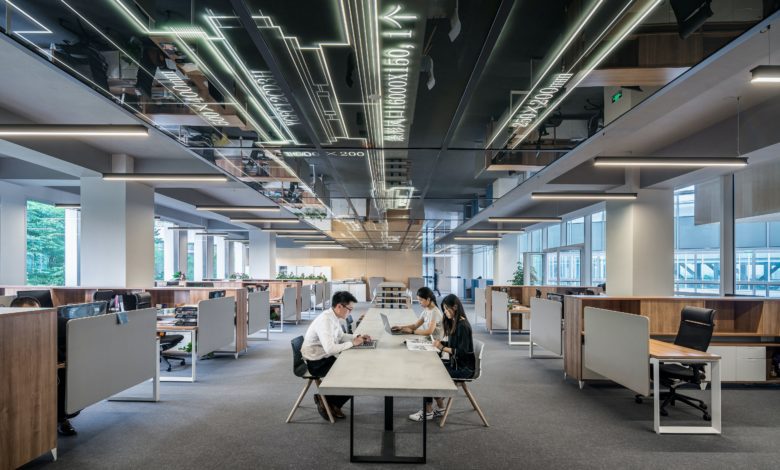Will firms lose out on candidates amid wellbeing concerns?
Jo Losty, recruitment director at Excello Law, discusses the transformation of lawyer demands in the legal profession, and how high salaries and a smart office may not be enough to attract and retain the best staff

The Covid-19 pandemic accelerated several employment trends that were already under way - most notably, flexible and remote working. As working from home (WFH) became ubiquitous for extended periods of lockdown, lawyers and law firms were forced to reevaluate the benefits that accrue in commuting less and spending more time at home. In a post-pandemic era, many lawyers want to retain what they have enjoyed over the past two years, but it is a mixed picture for employers.
Traditionally a laggard in adopting new working practices, the legal profession has undergone a transformation in response to lawyer demands for more flexibility. Since pandemic restrictions were finally lifted, the landscape has changed beyond recognition, leaving hybrid working patterns as the new normal in most law firms.
Analysts, however, predict that major players will ultimately cajole their staff back to the office for most of the working week. Kirkland and Ellis, the world’s largest law firm, recently announced that its 2,700+ lawyers would return to their offices for three set days a week from the end of March.
Meanwhile, the perennial problem of demanding billable hour targets and high levels of associated stress remains widespread. Set against financial reward, mental health now sits alongside work-life balance in the future career priorities of many young lawyers. Meanwhile, the Solicitors Regulation Authority (SRA) has launched a recent consultation on rule changes to health and wellbeing at work, recognising its role in pushing this to the top of the agenda.
A recent FT Innovative Lawyers report revealed that, irrespective of the salary on offer, 90% of lawyers would refuse to work for certain firms because of their concerns over the negative impact that working there could have on their mental health and wellbeing. According to the report, 38% of lawyers consider their current working hours to be unreasonable, while 30% would accept reduced pay in exchange for reduced working hours.
The obvious conclusion is that many lawyers want greater control over their lives and a healthier work-life balance. Indeed, the report noted that 32% of lawyers would prefer their working hours to be more strictly limited or regulated by their employer. For those who want to be their own boss or want to work for firms that put a premium on wellbeing and happiness, the employment options are shifting in their favour.
Nevertheless, there is still a long way to go. A recent LawCare study of UK and Irish lawyers found that a remarkable 69% of respondents had experienced mental health problems such as anxiety, low mood and depression in the previous 12 months.
The pressures of working in law firms are well-known: long hours, chargeable hours and billing target ed ethos, a culture of ‘presenteeism’, and an often lengthy commute. These pressures all take a heavy toll on lawyers and their families.
But mandated by governmental responses to the pandemic, the WFH experience has shown that other patterns of working are both possible and, indeed, preferable. The LawCare survey participants reported that WFH allowed them “greater flexibility, increased time with family, reduction in commuting time, the opportunity to develop healthy lifestyle habits and self-reflection”.
The law firm model is diversifying. An increasing move towards the revenue share and consultant lawyer model provides lawyers with complete autonomy to plan their daily timetable. They no longer have to account for every minute as required by some traditional firms. Critically, this autonomy enables them to allocate time - as and when they choose - to other parts of their life. Without the pressures of law firm management, billing and chargeable hour targets, they can focus 100% on their clients.
The commonly cited causes of poor mental health associated with traditional law firm culture - oppressive workloads, rigid schedules and unrealistic billing targets – do not feature in the consultant lawyer model. Instead, such firms prioritise the happiness of their lawyers giving them the freedom to control their work schedule, develop their own client relationships and set their own objectives without having to compromise on financial reward.
Firms that offer greater flexibility and a better work-life balance, combined with attractive financial rewards, have a growing appeal to talented lawyers. Reflecting the attitudes of Gen Z and millennial lawyers, the focus on quality of life outside work seems set to grow. A recent IBA survey of 3,000 lawyers under 40 found that a majority were likely to consider leaving their current positions within the next five years. For 60% of them, and almost three quarters of those under 25, the lack of a sustainable work-life balance was a major concern in their current role.
For those who join consultant lawyer firms, which often facilitate complete flexible working, being able to choose when and how they work is critical. They can develop their careers to suit their own professional ambitions. It is therefore no surprise that a consistent drain of talent from major firms towards fee share and dispersed model firms has occurred.
These firms routinely provide lawyers with sophisticated, user-friendly technology to facilitate working from home. To suit lawyers who prefer hybrid working, some firms also provide fully equipped modern offices around the country to enable team working and face-to-face client meetings.
Flexible working also makes good business sense, reducing employee turnover and associated costs. A Legal Futures survey found that it has also superseded pay as the top priority for lawyers seeking to move. Accordingly, firms can reduce central office overheads, while attracting high quality lawyers.
Although the pandemic was a catalyst for accelerating change across the legal sector, the forces of resistance remain strong as they fight to bring workers back to the office more often and to keep hours long. There remains much progress to be made – indeed, firms continue to be evaluated on old-fashioned metrics such as the number of fee earners and the firm’s turnover, when both staff and candidates demonstrably value other measurements. A focus on lawyer happiness, mental health and client satisfaction would certainly paint a more interesting picture.
If the pandemic has provided proof that the traditional legal practice is not the only way to get results, law firms have to recognise that high salaries and a smart office may not be enough to attract and retain the best staff. To compete for the best talent, wellbeing and flexibility must be seen as equally fundamental.







